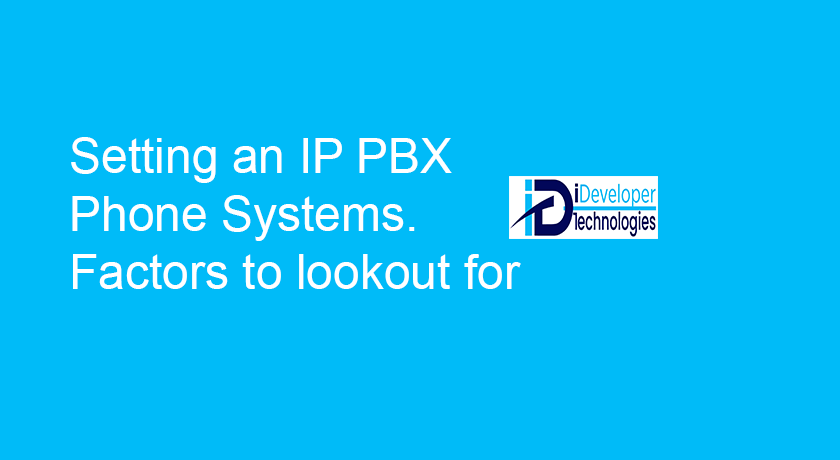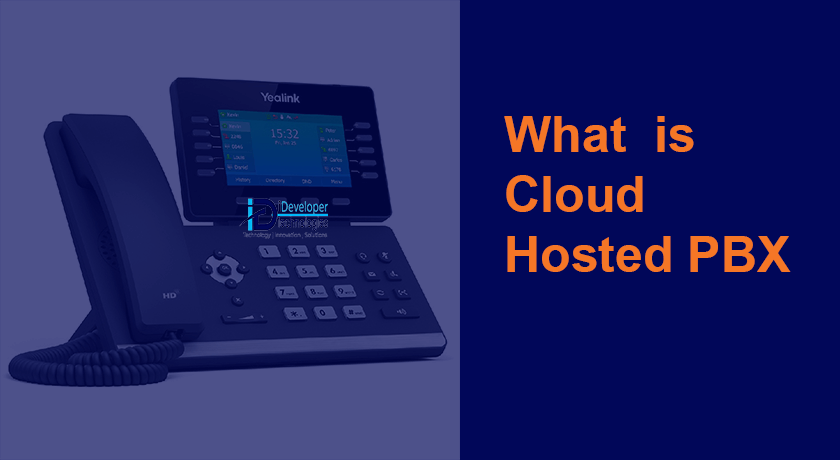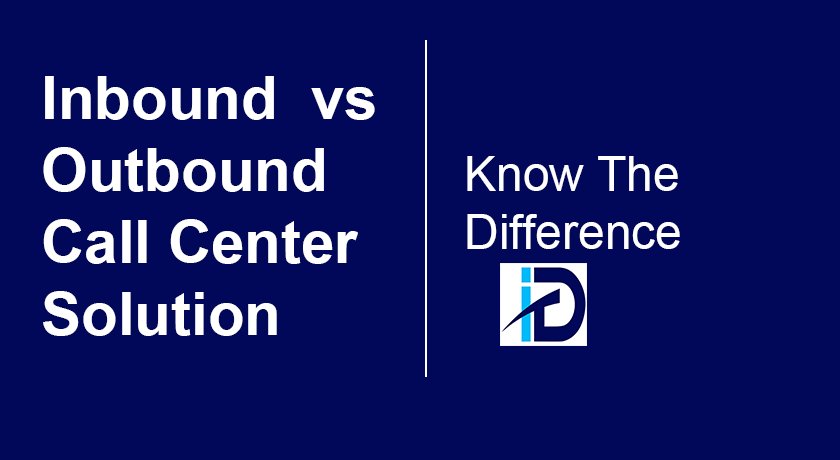Cloud PBX is revolutionizing business communication. By leveraging the internet rather than conventional phone lines,…

Factor to consider while setting up IP PBX system
Understanding IP PBX and Selecting the Best Provider
The phone systems of today are IP PBX Phone Systems. Find more about IP PBX Phone Systems, what they are, how they operate, and why your business would want to use one.
additionally, IP PBX Phone systems solutions being internet-based, do away with the antiquated problem of phone wiring. They relieve IT managers of their hassles, and add an abundance of innovative features.
Let’s examine what an IP PBX is, how it functions, and the reasons your business might want to use one of these phone systems.
An IP PBX: What is it?
VoIP is used by IP PBXs, or Internet Protocol Private Branch Exchanges, a kind of business phone system, to link calls to the public phone network.
IP PBX Phone systems can be on-premises or hybrid, combining the features of both on-premises and cloud-based phone systems.
The functionality of on-premise IP PBX systems is programmed into the PBX hardware, which is located on the premises. Conversely, hosted PBX systems, also known as cloud-based IP PBX systems, don’t need hardware to be installed on-site, because their functionality is stored in software.
In either scenario, phone users connect to the IP PBX system over the internet in order to make calls.
READ: 10 benefits of cloud based voip solution
PBX Phone Systems Back then and now
In the past, PBX systems were only available to businesses with substantial resources and staff for switchboard functions and other “complex” capabilities.
Instead of buying separate landlines for each station, this was accomplished by running real phone lines through a variety of stations and then the PBX equipment.
An operator would once accept incoming calls for a corporation before forwarding them to the relevant department. Calls were routed to different extensions by automated attendants, who eventually took the place of human operators.
The PBX system is now digital in nature. Now offered as a software service, all of the “complex” functions that were previously supported by the conventional PBX hardware are still accessible. We refer to this as the IP PBX.
How Devices Interact with an IP PBX Phones
VoIP phones and PBX servers are connected via an IP PBX, which offers the advantages of call distribution and multi-device integration.
Calls on an IP PBX system can be simultaneously routed to several devices and locations, provided that both the VoIP users and the devices are registered with the VoIP server.
One of the primary distinctions between an IP PBX and a conventional phone system is this. Since the IP PBX connects to devices online, it is not limited by physical space.
The ability to use mobile devices is an additional feature that this offers, which is essential for today’s workforce.
The Benefits of an IP PBX System
Let’s examine the pricing, service, administrative, and functionality advantages that an IP PBX offers a company.
These are 11 benefits that an IP PBX could offer your business.
1. Integration of Mobile Devices with IP PBX Systems
Using the same phone number and extension as your desk phone, you can make and receive calls on your mobile device using an IP PBX. To accomplish this, download a mobile app that is fully integrated with the IP PBX system of your business.
Because cell phone numbers aren’t linked to landlines, it is possible to use them.
2. Uncomplicated Administration
Without any technical knowledge, you can update and configure your phone system using an online dashboard to administer an IP PBX. Through chat, any issues can be promptly rectified, and you can proceed. Conventional phone systems typically need the help of pricey consultants and are challenging to update and manage.
3. Consolidation of Prices
You can combine several phone systems and services into one solution by using an IP PBX Phone system. You can eliminate extra expenses like SIP trunking, user licenses, PBX equipment, and maintenance fees in addition to managing several locations under a single account.
4. IP PBX Solution Ability to Scale
Scalability for your company is ensured by online administration and the removal of user license costs. There is no additional expense to add lines or features from a contractual, management, or cost perspective as your user base increases and feature requests rise.
Why a VoIP phone system shouldn’t be purchased per user.
Conversely, adding a user or function to an on-premise phone system is very expensive and time-consuming.
Long-term contracts are necessary, but so is employing telecom engineers or depending on the vendor to maintain the system.
For the business, this presents a large financial burden, and for IT managers, it is a tremendous time waster.
Changes to an IP PBX Phone system can be done instantaneously online, and adding users doesn’t cost extra.
5. Improved Features for Contact Centres
The majority of businesses who go from an on-premise PBX to an IP PBX will also immediately benefit from a significant increase in contact centre services. Many features are included:
- Call backlogs
- Caller analytics
- Call logging
- Real-time call monitoring
- Web-based phone
- Hunter groups
6. Softphone Features
You can use IP phones, mobile phones, and softphones with IP PBX Phone systems. By downloading a softphone to your computer, you can use your business phone number from any location with internet access.
A softphone is a virtual phone. Softphones are often used by call centres and sales teams that handle large amounts of incoming calls.
It makes dialling faster and navigating between apps easier. You can also offer softphones to your teams by upgrading to an IP PBX
7. Using a Hot Desk PBX phone system feature
Hot desking is one of the many functions and customisation options the IP PBX offers to your business communications platform, and it might be useful for contemporary office designs.
The capability of many people using the same workstation at once is known as hot desking. With a hot desk, the desk phone remains immovable, but many users can log in and utilise separate extensions.
This is easily possible with IP PBX Phone systems. Additionally, a user can physically relocate their desk phone to a different area, disconnect it, plug it in, and carry on using it as usual.
This just could not be done without a great deal of work with a typical PBX. Extensions would need to be entirely redirected and reattached to the new workstation or office space.
8. Simple Assembly
IT managers are very happy about how simple IP PBX Phone systems are to set up. There is no similarity in terms of deployment.
An IP PBX can be implemented by non-technical employees, such as an administrative assistant or office manager. This is in contrast to a traditional PBX, which necessitates substantial technical expertise and familiarity with phone systems.
Configuring a typical PBX system can take weeks or even months. Even for large organisations, an IP PBX may be fully set up in hours.
The IP PBX setup process is web-based due of its internet-based nature. Additionally, online interface is used to create hunt groups, add extensions, and record automated menu greetings.
9. Enhanced Trustworthiness
By using a hosted PBX system, you delegate to professionals whose primary emphasis is the PBX the task of managing your telephone infrastructure.
while switching to an IP phone system, your PBX becomes software that is backed up across several sites instead of a single piece of hardware.
Moreover, your phone system will experience far fewer outages and be able to be resolved much more quickly if it is spread over several redundant locations throughout the world.
10. Less Disarray
This is one of the best features of IP PBX Phone systems for the minimalist. Desk phones can be connected to a computer network port via an IP phone system, and softphones are compatible with all PCs. Additionally, the majority of VoIP phones can draw power from an Ethernet connection thanks to a feature called PoE. This implies that additional phone cables are not needed to power or link various gadgets.
11. Vendor Flexibility:
IP PBX systems are fully based on the open SIP standard. This allows you to switch up any SIP hardware or software device paired with any SIP-based IP PBX, VoIP service provider, or PSTN Gateway.
On the other hand, Traditional phone systems, require you to buy extension modules in order to add features, which is a costly and continuous hardware expense.
The Difficulties of Changing to an IP PBX
Even with all the obvious benefits, management could still be reluctant to completely revamp your phone system. We comprehend. The old PBX has been heavily invested in, you’ve had it for years, certain people dislike change, and despite its problems, it’s still functional.
Let’s discuss three typical worries and how to resolve them.
1. Transitional Expenses
Consider to spend money on new IP phones for the company if it currently uses an analogue on-site PBX system. Although it’s not advised, you might utilise ATA adapters to keep the outdated phones operational.
You won’t receive all of the advantages unless you buy the adaptors.
The cost of buying new IP phones for the entire company could be expensive, depending on how many users you have. You should consider it an investment.
IP phones have an easy ten-year lifespan. The best thing about IP phones is that their firmware, or software, can be updated automatically and will receive free updates from the phone maker over time.
2. Educating Staff on a PABX Phone Solution
Not only is deployment simple, but user training is not required. Using a desk phone functions similarly in its fundamental ways.
The procedures for placing someone on hold, transferring calls, and adding a conference call are all the same, if not simpler. The extra advantage is that you can utilise a webphone to complete this process entirely online.
Difference won’t be noticeable to those who prefer to continue using a desk phone with a classic appearance.
If they choose the app, modern users will find it easy to utilise the mobile app and navigate the dashboard, just like they would with their own dialpad.
3. Crafting Personalised Integrations for IP PBX System
You will require a developer that can create the integration using APIs if you need to create a bespoke integration that isn’t already offered by the IP PBX provider out of the box.
If the integration you require is straightforward enough, you might be able to integrate your platforms using an app like Zapier without having to undertake any bespoke work.
The Choosing Final Option
Consumers seek for businesses that use the newest technology. As a matter of fact, everything about your business may be inferred from the technologies you use—or don’t use.
How many times have you done your homework on vendors only to be turned off right away because their website appeared to be from the 1990s?
Additionally, It is an indication of the company as a whole. The same applies to your messaging platform. Selecting an appropriate phone system is among the most crucial choices you will have to make for your business.
Failing to use the newest communications technology can seriously jeopardise operations in this rapidly digitising era and cause your firm to fall behind competitors in the marketplace.



